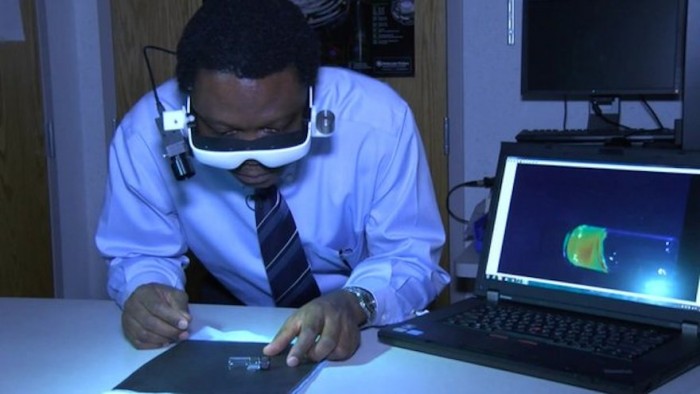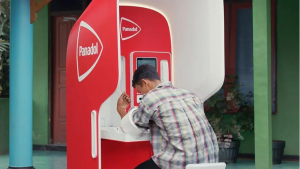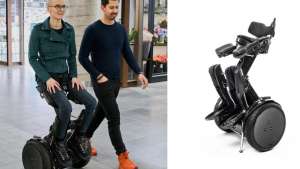
Nigerian born scientist Samuel Achilefu started his acceptance speech for the St. Louis Award in 2014 by saying, “Our efforts start with two words, ‘what if?'”
"These words may sound simple," he said, "but they embody the belief that each person has the potential to make a difference, if only he or she can take the time to understand the problem.”
Dr. Achilefu, a professor of radiology biochemistry, won the award - which recognises area residents whose achievements positively impact the community - for his groundbreaking cancer-visualisation glasses. The alien-looking glasses only work in the dark and enable surgeons to see cells that cannot otherwise be seen with the naked eye.
His method is simple. Infrared fluorescent marker is injected into the patient’s bloodstream. The marker contains peptides that carry the liquid through the bloodstream locating and lodging it into the cancer cells. After approximately four hours the marker is completely drained from healthy cells. The wearer of the glasses, usually a surgeon, can then pick up the infrared glow of the fluorescents in malignant tumours that react with the dye, causing it to glow. In darkness the marker literally becomes the surgeons guiding light making it easy to trace and remove cancer cells that are hidden or very small.
After winning a scholarship from the French government and graduating from the University of Nancy, Achilefu moved with his wife and children to St Louis in order to head up a new research department at the Mallinckrodt Institute of Radiology.
Achilefu and his team initially received a small grant from the Department of Defense’s Breast Cancer Research Program to develop the glasses, but extensive work only began in 2012 when the team received a $2.8 million grant from the National Institute of Health. After years of animal testing, the system has finally been tested on humans with phenomenal results. Achilefu and his team have been using an inferior liquid marker while they await approval on their own from the Food and Drug Administration (FDA), but already the response has far exceeded the medical fraternities expectations. So far four patients with breast cancer and over twenty patients with either skin or liver cancer have been operated on using the goggles.
The cancer-visualisation glasses have the potential to save thousands of patients from needed second and third lumpectomies due to the microscopic, undetected cells that are missed in the first operation.






